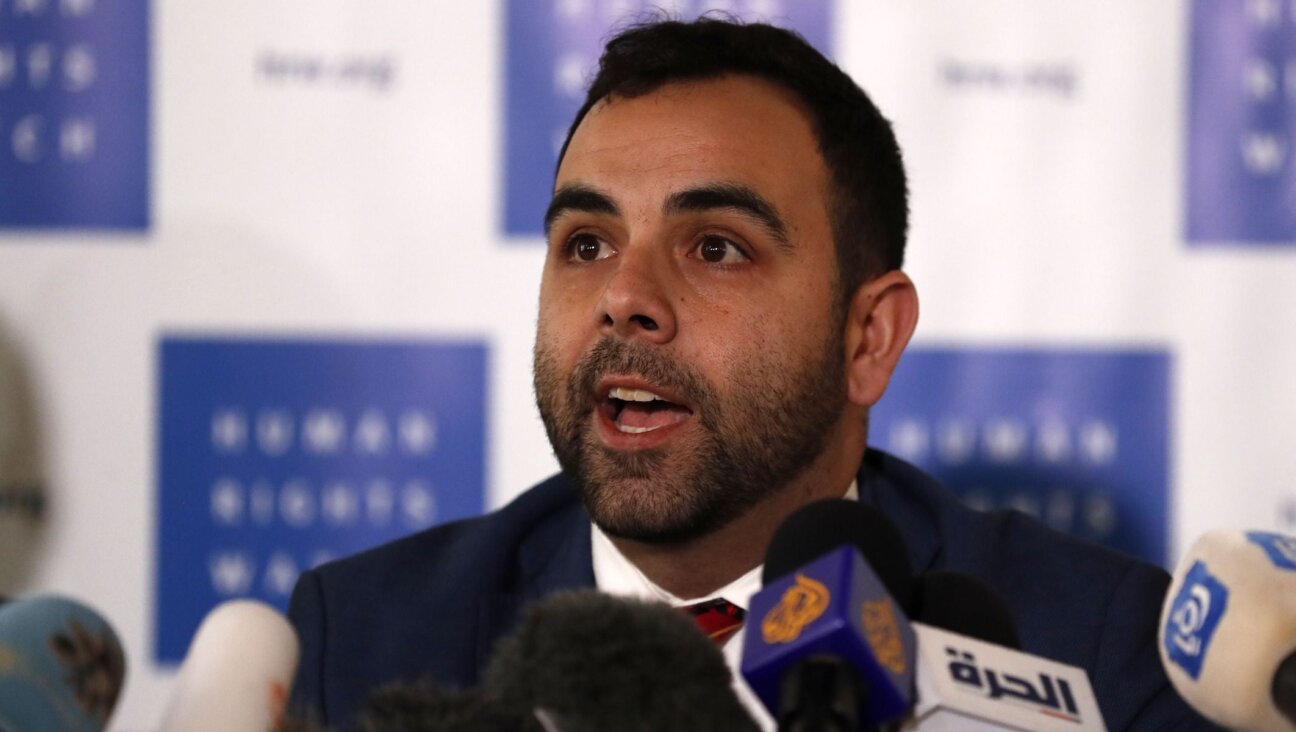SodaStream Boss Blasts BDS — as Firm Quits West Bank

Graphic by Angelie Zaslavsky
SodaStream’s chief executive called the Boycott, Divestment and Sanctions movement anti-Semitic and maintained that his company gave West Bank Palestinian workers good pay and benefits.
In an interview with the Associated Press on Wednesday, two weeks before the West Bank factory is set to close, SodaStream CEO Daniel Birnbaum said his company’s critics did not have a grasp on the situation on the ground at the factory.
“It’s propaganda. It’s politics. It’s hate. It’s anti-Semitism. It’s all the bad stuff we don’t want to be a part of,” Birnbaum said. “SodaStream should have been encouraged in the West Bank if [the BDS movement] truly cared about the Palestinian people.”
SodaStream, a company that produces domestic soda-making machines, announced last fall that it would close its West Bank factory in the face of international pressure from the BDS movement, which seeks to hurt Israel’s economy over its policies towards Palestinians. The movement claimed that SodaStream discriminated against Palestinian workers and paid some less than Israeli workers.
Hundreds of Palestinian workers from the factory could lose their jobs in the company’s transition to a new plant in the Negev region because Israel will not grant them all work permits for security reasons. Up to 600 Palestinians worked in the West Bank, and Birnbaum said only about 130 have so far been granted work permits.
“All the people who wanted to close [the West Bank factory] are mistaken,” Ali Jafar, a shift manager from a West Bank told the AP. “They didn’t take into consideration the families.”
The commute for West Bank workers will now be a two-hour bus ride to the Negev plant that involves an Israeli border security checkpoint.
SodaStream’s revenue took a big hit in 2014. Birnbaum blamed the U.S. market’s movement away from sugary drinks, not the influence of BDS pressure.














